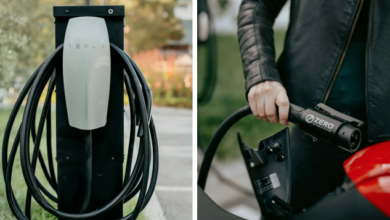Nov. 12, 2007 – Business fights for Michigan rail trails
The trails committee of the Keweenaw Peninsula Chamber of Commerce in Houghton, Mich., has a multi-pronged approach to address the issue of potential rail trail closures, which includes resolutions, petitions and pressure.
At issue is rights to abandoned rail corridors. For the past two seasons, sections of rail grade in the Houghton area, owned by the Michigan Department of Natural Resources, have been blocked by neighboring landowners. While the trails in question are not officially designated and groomed trails, snowmobile use is permitted on the grades. In some cases, it is the only snowmobile link available to various communities, including to the town of Chassel.
Legal action earlier in 2007, on the part of the state, resulted in an order to remove the barricades — which was ignored by adjacent landowners, said Neil Marieta, trails committee member and owner of Bunker Hill Recreation in Hancock, Mich. In the meantime, another barricade has been erected.
Legal action has not been moving fast enough for some tastes, so the trails committee started a grassroots fight.
At least 18 Keweenaw-area municipalities have adopted a resolution stating they support preserving abandoned railroad grade corridors for future rail use and interim use as public trails, Marieta said.
The Keweenaw Peninsula Chamber of Commerce is sending out two appeals to the snowmobiling public, both within Michigan and to snowmobilers who ride in Michigan.
First, they’re asking people to sign a petition to “preserve abandoned railroad grade corridors for future rail use and interim use as public trails in the state of Michigan.” Petitions are available at www.keweenaw.org and at www.bunkerhillrecreation.com under “Facts from the Mayor.” The group is still determining where to send the collected petitions, but Marieta has his sites on Michigan’s Governor Jennifer Granholm.
Second, the committee is asking Michigan residents and snowmobile-related business owners to write to state representatives to ask them to take action against those who block public trails.
Should the blockages prevail, it could have consequences for other rail trails across the state, Ron Yesney, a recreation specialist for the Michigan DNR, said.
The susceptibility of a rail trail to closure depends on how it was ceded to the state for recreational use, Yesney said. If the grades were turned over as “interim trails,” meaning it’s reserved for potential future railroad use, then its use as a trail is safe. But only a small percentage of the trails have that designation, Yesney said. psb




